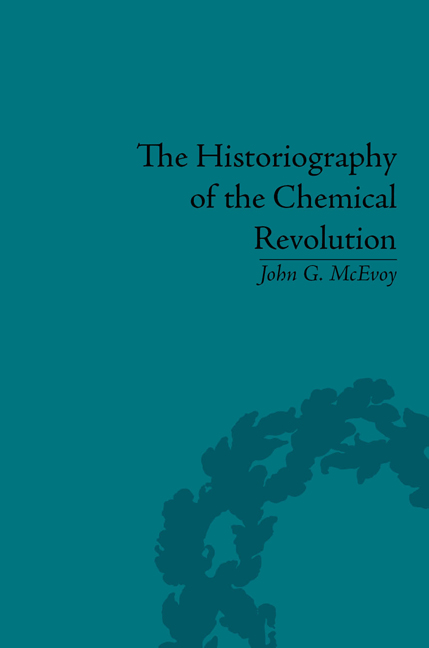Book contents
- Frontmatter
- CONTENTS
- Dedication
- Acknowledgements
- Preface
- Introduction: The Philosophical and Historiographical Terrain
- 1 Positivism, Whiggism and the Chemical Revolution
- 2 Postpositivism and the History of Science
- 3 Postpositivist Interpretations of the Chemical Revolution
- 4 From Modernism to Postmodernism: Changing Philosophical Images of Science
- 5 The Sociology of Scientific Knowledge and the History of Science
- 6 Postmodernist and Sociological Interpretations of the Chemical Revolution
- 7 The Chemical Revolution as History
- Notes
- Works Cited
- Index
1 - Positivism, Whiggism and the Chemical Revolution
- Frontmatter
- CONTENTS
- Dedication
- Acknowledgements
- Preface
- Introduction: The Philosophical and Historiographical Terrain
- 1 Positivism, Whiggism and the Chemical Revolution
- 2 Postpositivism and the History of Science
- 3 Postpositivist Interpretations of the Chemical Revolution
- 4 From Modernism to Postmodernism: Changing Philosophical Images of Science
- 5 The Sociology of Scientific Knowledge and the History of Science
- 6 Postmodernist and Sociological Interpretations of the Chemical Revolution
- 7 The Chemical Revolution as History
- Notes
- Works Cited
- Index
Summary
Logical Positivism was a dominant paradigm in twentieth-century philosophy: it shaped ‘virtually every significant result obtained in the philosophy of science between the 1920s and 1950’. Logical Positivism was itself a narrow technical expression of more general philosophical sensibilities associated with the Positivist Movement which first emerged in France at the beginning of the nineteenth century. This movement mingled with the English Whig tradition in political and general history, leading to the idea that the history of science consists in a progressive, teleological struggle between the inexorable agents of cognitive progress and their reactionary opponents. Whig historiographical sensibilities endorsed the positivist view of science as a unitary domain of value-free knowledge, hermetically sealed from metaphysics by the operation of an algorithmic method of inquiry. The mingling of these philosophical and historiographical sensibilities resulted in the hybrid, positivist-Whig historiography of science, which had a long and powerful influence on our understanding of the Chemical Revolution. This chapter relates this influence to variations, within a shared metaphysical framework, on the idea of a unique and defining method of scientific inquiry. It delineates the components of this hybrid historiography – positivism and whiggism – and relates them to deeper and broader philosophical influences associated with the essentialist doctrine of knowledge as inscribed in the nature of things and the historicist notion of an inherent logic of history.
- Type
- Chapter
- Information
- The Historiography of the Chemical RevolutionPatterns of Interpretation in the History of Science, pp. 23 - 52Publisher: Pickering & ChattoFirst published in: 2014



